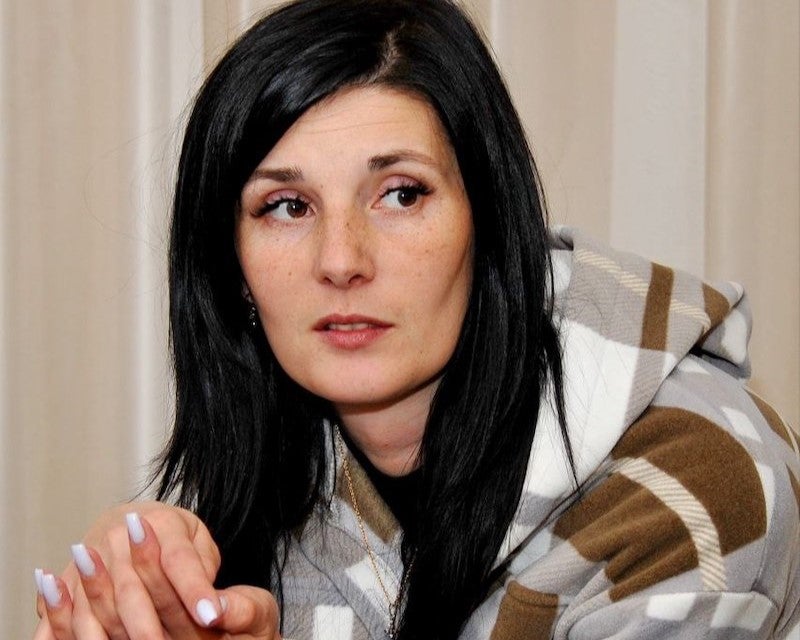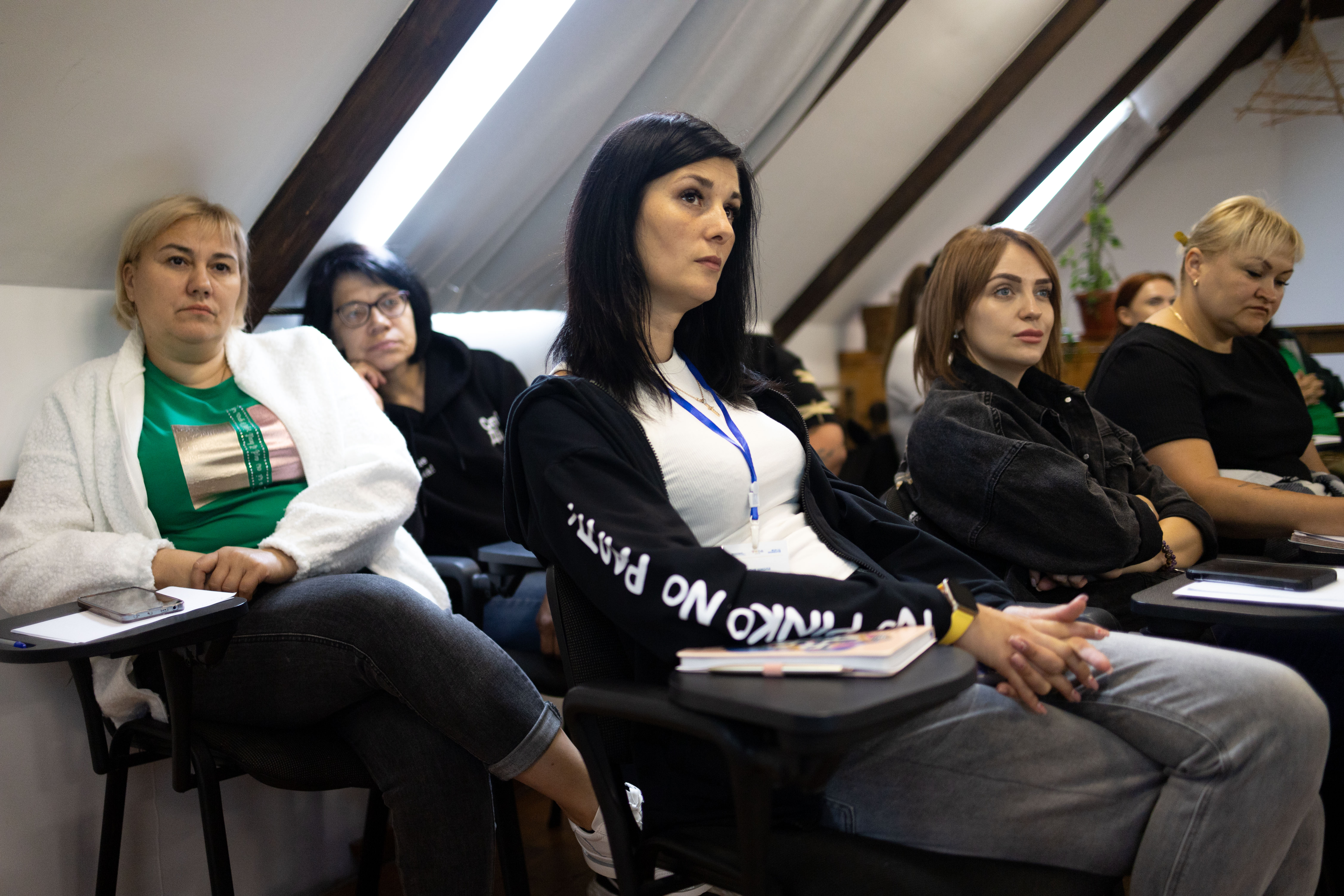Coming Together, Learning, and Not Forgetting Ourselves: The Story of Alla Palamarchuk
Date:

Alla Palamarchuk is a volunteer from Kryvyi Rih who has been actively supporting both military personnel and civilians since 2022. Her journey is full of inspiring moments, and she is eager to share them to highlight the importance of supporting the women volunteers who dedicate themselves to assisting others.
The Path to Volunteering
Alla became a volunteer in 2022, driven by a strong desire to help and support people wherever she could. At first, she volunteered independently, but later that year, she co-founded the NGO “Zarichnyi Humanitarian Headquarters.” The first to receive assistance were internally displaced people, especially from Kherson and Mykolaiv regions. Over time, the organization expanded its support to the military, providing gear, medical supplies, food, camouflage nets, warmers, and more.
In her second year of volunteering, Alla experienced emotional burnout—a common challenge for those who fully dedicate themselves to helping others. With support from loved ones and her belief in the importance of her work, she overcame this difficult period.
Support and Growth: New Experience Through the #VolonterkyUA Project
In 2023, Alla was introduced to a previous project by the YMCA Youth Organization called #VolonterkyLviv. It became a crucial step in her personal and professional development. Early meetings with other women volunteers, knowledge-sharing, and joint training sessions opened up new opportunities.
Soon, Alla became a regional coordinator for YMCA Lviv’s new project, #VolonterkyUA. The project was implemented with technical support from UN Women in Ukraine and funding from the United Nations Women’s Peace and Humanitarian Fund (WPHF).
“It was a completely new experience for me—a new level and new responsibility. I realized how important it is not just to work nonstop, but to learn, systematize processes, and care for my own resources,” shares Alla.
One of the most valuable parts of this collaboration were the training sessions—on tactical medicine, volunteer-military interactions, and project proposal writing. These sessions not only provided new knowledge but also opened new development prospects for her organization, especially in the area of grant applications. Alla and her team are currently working on a new project.

The Role of a Coordinator and the Importance of Networking
The task was not easy: to unite women volunteers, find ways for effective cooperation, and address urgent issues. It was not just about sharing information and needs but also establishing new connections. These efforts led to the creation of a strong support network among volunteers.
“My role as a coordinator was to connect people, help them find answers to their questions, and maintain communication between volunteers from different cities. Even when it was difficult to gather an audience, I did my best to match the volunteers’ needs with our resources,” says Alla.
Supporting Women Volunteers: Alla Reflects on the #VolonterkyUA Project
“The project helped me and many other women volunteers understand how important it is to rest, learn new things, and maintain our own resources. It’s not just about knowledge—it’s also about feeling supported and recognizing our own value. The project reminded us that women volunteers are people too, with needs and a right to support. Legal and psychological help, and the relevance of the training sessions, were particularly valuable, as they gave us new skills to do more and work more effectively. It also brought people together, creating a community where each volunteer can feel she’s not alone—together, we can achieve more while spending fewer resources,” Alla says.
“Coming together, learning, and not forgetting ourselves. I would love to see this project continue and grow—not only through training but with more meetings, networking, and opportunities for mutual understanding and support among women volunteers. It’s crucial to raise awareness about the role of volunteers in our country, because unfortunately, they still lack proper legal protection. I believe we can change that if we unite, build a legal framework, and lead an advocacy campaign to support both male and female volunteers. Society needs this now more than ever.”
*****
The publication is part of the project “Strengthening a Women Volunteers’ Network and Its Capacity in Frontline Regions of Ukraine” (#VolonterkyUA), implemented by YMCA Lviv, funded by The United Nations Women’s Peace and Humanitarian Fund (WPHF) with technical support of UN Women Ukraine. The United Nations Women’s Peace and Humanitarian Fund (WPHF) mobilizes critical support for local and grassroots civil society organizations working on women, peace and security and humanitarian action. WPHF is a flexible and rapid financing mechanism supporting quality interventions designed to enhance the capacity of women to prevent conflict, respond to crises and emergencies, and seize key peacebuilding opportunities.
This publication is produced with funding from the United Nations Women’s Peace and Humanitarian Fund (WPHF), however, the views expressed and content included does not imply official endorsement or acceptance by the United Nations.